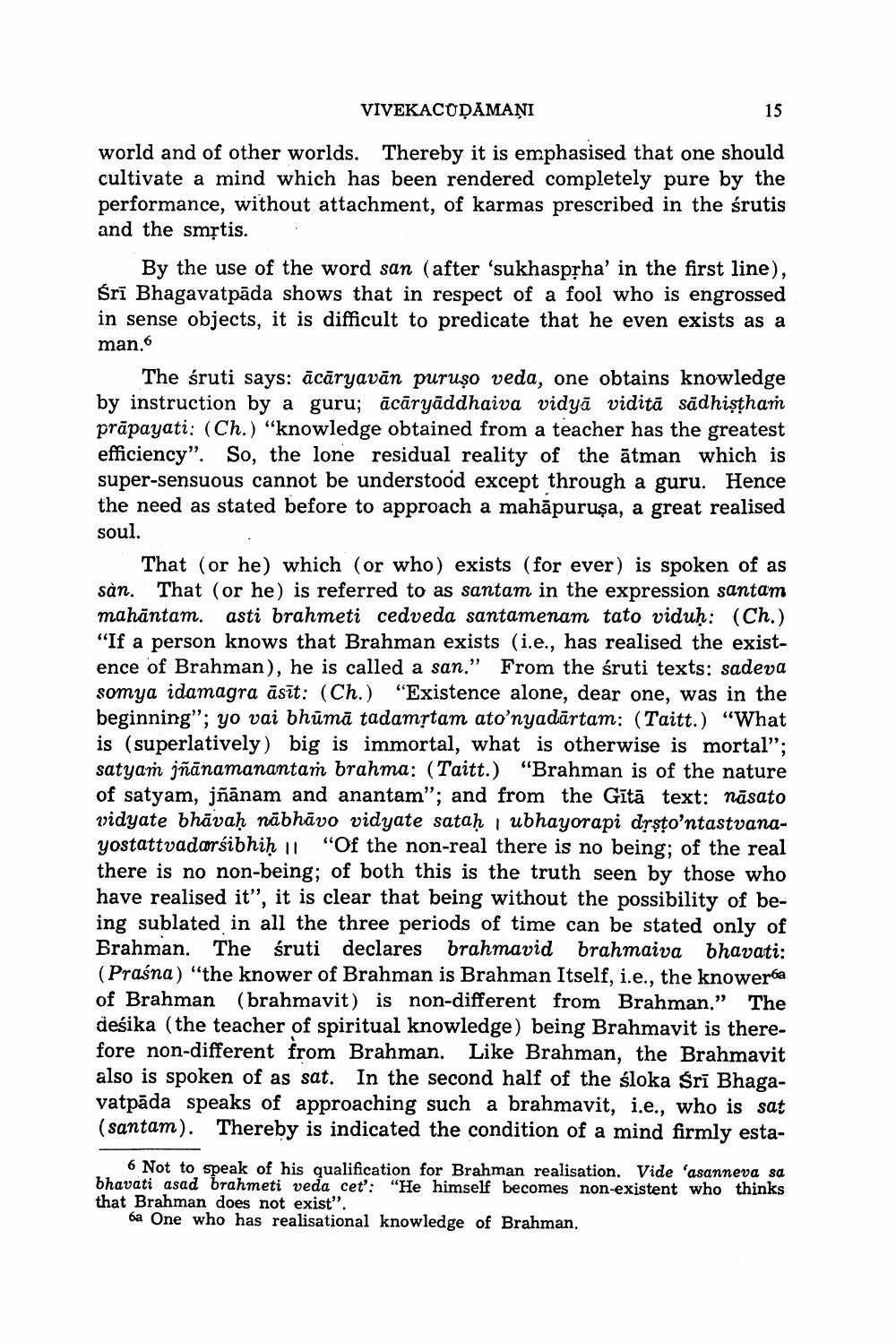________________
VIVEKACODAMAŅI
15
world and of other worlds. Thereby it is emphasised that one should cultivate a mind which has been rendered completely pure by the performance, without attachment, of karmas prescribed in the śrutis and the smộtis.
By the use of the word san (after 'sukhasprha' in the first line), Śrī Bhagavatpāda shows that in respect of a fool who is engrossed in sense objects, it is difficult to predicate that he even exists as a man.
The śruti says: ācāryavān puruṣo veda, one obtains knowledge by instruction by a guru; ācāryāddhaiva vidyā viditā sādhișthaí prāpayati: (Ch.) "knowledge obtained from a teacher has the greatest efficiency". So, the lone residual reality of the atman which is super-sensuous cannot be understood except through a guru. Hence the need as stated before to approach a mahāpuruşa, a great realised soul.
That (or he) which (or who) exists (for ever) is spoken of as sàn. That (or he) is referred to as santam in the expression santam mahāntam asti brahmeti cedveda santamenam tato viduh: (Ch.) "If a person knows that Brahman exists (i.e., has realised the existence of Brahman), he is called a san." From the śruti texts: sadeva somya idamagra āsīt: (Ch.) "Existence alone, dear one, was in the beginning”; yo vai bhūmā tadamệtam ato'nyadārtam: (Taitt.) “What is (superlatively) big is immortal, what is otherwise is mortal”; satyam jñānamanantam brahma: (Taitt.) "Brahman is of the nature of satyam, jñānam and anantam"; and from the Gītā text: nāsato vidyate bhāvaḥ nābhāvo vidyate sataḥ | ubhayorapi dysto'ntastvanayostattvadarsibhiḥ 11 "Of the non-real there is no being; of the real there is no non-being; of both this is the truth seen by those who have realised it”, it is clear that being without the possibility of being sublated in all the three periods of time can be stated only of Brahman. The śruti declares brahmavid brahmaiva bhavati: (Praśna) "the knower of Brahman is Brahman Itself, i.e., the knowera of Brahman (brahmavit) is non-different from Brahman.” The deśika (the teacher of spiritual knowledge) being Brahmavit is therefore non-different from Brahman. Like Brahman, the Brahmavit also is spoken of as sat. In the second half of the sloka Śrī Bhagavatpäda speaks of approaching such a brahmavit, i.e., who is sat (santam). Thereby is indicated the condition of a mind firmly esta
6 Not to speak of his qualification for Brahman realisation. Vide 'asanneva sa bhavati asad brahmeti veda cet': "He himself becomes non-existent who thinks that Brahman does not exist".
6a One who has realisational knowledge of Brahman,




